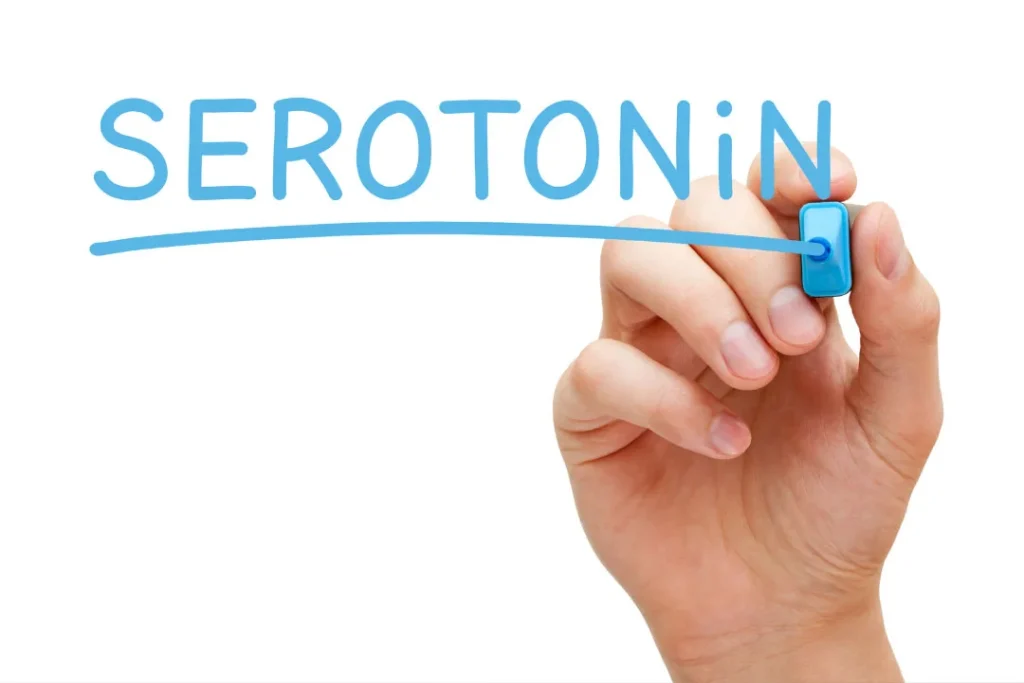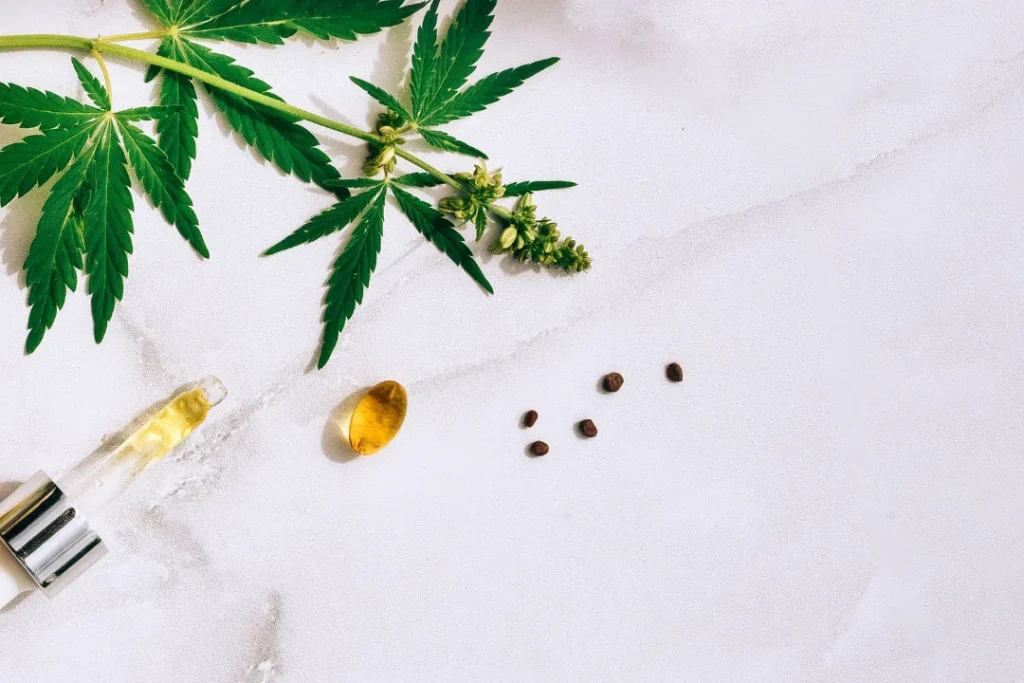Research has shown that CBD may reduce anxiety symptoms and even help relieve anxiety-induced insomnia. This article will discuss the pros and cons of CBD oil for anxiety so you can make an informed purchase decision.
According to the Anxiety and Depression Association of America, over 40 million Americans suffer from anxiety disorders. It is the most common mental illness in the U.S. However, it also responds well to treatment. Conventional approaches to treating anxiety are giving way to natural treatments, which consumers view as safer and less addictive than traditional medications. One such natural remedy is CBD oil.
Cannabidiol, or CBD, is derived directly from the hemp plant, a cousin of marijuana. It does not contain tetrahydrocannabinol (THC), the psychoactive ingredient that produces a high. What differentiates hemp from marijuana is the amount of CBD and THC active in the plant. A cannabis plant must have less than 0.3% THC, which is a trace amount, to be considered hemp.
The health benefits of CBD oil are just starting to be understood. While clinical tests are being explored, the effects of CBD are still best described by anecdotal evidence.
The Pros and Cons of CBD Oil for Anxiety is an original (BetterNutritionNews) article.
CBD oil as a remedy for anxiety
The primary issue at the heart of anxiety disorders is low serotonin, a neurotransmitter related to mood and well-being. Serotonin, or 5-hydroxytryptamine, carries messages between the brain’s nerve cells and affects a range of functions, including sleep. Researchers have found that CBD exhibited anti-anxiety effects in animal models.
Terpenes, the calming compounds in CBD oil, interact with receptors and neurotransmitters and can increase serotonin levels. Research indicates that when terpenes and cannabinoids interact with each other at endocannabinoid receptor sites, they create an “entourage effect” with potential anxiety-relieving effects. The hypothesis is that the “full spectrum” of cannabinoids, terpenes, and other compounds found in cannabis work synergistically to relieve anxiety. Full spectrum is the pure oil that is extracted from the entire hemp plant.
However, looking at the pros and cons of CBD oil for anxiety, it’s important to note that CBD may have side effects. Some people may experience diarrhea, fatigue, and changes in appetite. CBD oil may also interact with other medications or dietary supplements. If you’re interested in using CBD oil for anxiety, you should consult a medical professional.

Pros and cons of CBD oil for anxiety:
Terpenes
There are about 400 known terpenes in CBD. Terpenes are fragrant oils that give strains of cannabis different tastes and smells.
- Beta-caryophyllene is the only terpene that can act as a cannabinoid to ease anxiety almost immediately. Caryophyllene, a common terpene that is found in many cannabis strains, has been found to help relieve stress and calm the mind and body.
- Myrcene is an abundant monoterpene in cannabis. Studies show that myrcene has sedative effects that help those suffering from anxiety, insomnia, and other sleep disorders.
- Alpha-pinene studies indicate that this terpene interacts with gene SNPs, which are involved with anxiety symptoms and may be effective in relieving anxiety.
- Linalool, which is found in lavender, can help bring the body to a relaxed state and calm the mind.
- The terpene limonene has been shown to have anti-anxiety properties. However, some studies show that limonene can heighten anxiety when paired with pinene, causing an increase in heart rate and paranoia.
Furthermore, there are terpenes such as citronellol and terpinolene that may exacerbate anxiety. For those who don’t suffer from anxiety, some strains of terpenes might cause an anxious reaction.
It’s important to use only cannabis products that are aligned with specific symptoms. Read the ingredient labels carefully. CBD manufacturer Partnered Process, for example, clearly states that the primary terpenes in its CBD oil are beta-caryophyllene, myrcene, and alpha-pinene.

Pros and cons of CBD oil for anxiety:
Product quality
It’s important to know how the products you use are made and where they come from. Is the hemp grown locally? Does the product have a QR code that identifies its ingredients and certifies that it is third-party tested? It is worthwhile to read the labels or request the testing results of the cannabis products you use to verify what other cannabinoids you’re ingesting.
For example, to ensure quality and transparency, CBD oil that is produced by Partnered Process comes with a QR code. When scanned, it provides lab results to ensure that the CBD has been correctly extracted and is safe to use.
Pros and cons of CBD oil for anxiety:
Potency
Reputable CBD oil manufacturers will send their products to accredited third-party labs to be tested. They will make the testing results available to the public through certificates of analysis or COAs. You should ensure that the CBD oil you purchase is made with U.S.-grown hemp. Furthermore, it should not contain more than 0.3% THC according to the COA. For example, Partnered Process uses third-party lab testing to verify the purity and potency of each of its extracts.
Some CBD products contain more than a trace amount of THC, which can increase anxiety. Since CBD oil is not FDA-regulated, doses can vary among products.
The benefits of Partnered Process CBD oil
Partnered Process is a CBD oil producer that strives for transparency. Each of their products includes a QR code that can be scanned to show the third-party lab results of the CBD oil and where the hemp was harvested.
Their products contain anxiety-calming terpenes, such as beta-caryophyllene, myrcene, alpha-pinene, and 22 other minor terpenes. Partnered Process full-spectrum CBD oil contains all the compounds that are naturally available in the cannabis plant. The THC level of their oil is less than 0.3%. Additionally, their product contains other beneficial compounds that work together to help the body regulate itself and maintain homeostasis.
Partnered Process is committed to producing potent and consistent products. Their products are not intended to cure or treat any medical condition, ailment, or disease. All medical care should be conducted under a licensed medical doctor.

Pros and cons of CBD oil for anxiety:
Is it worth it?
If anxiety is disrupting your life, a CBD oil that contains calming terpenes and a full spectrum “entourage effect” might be helpful. Before taking CBD oil, it is wise to examine the ingredients, quality, dosing, and other important factors. Before scientists can definitively conclude that CBD oil is a beneficial treatment for anxiety, more study is needed. However, the research to date is promising.

For further research:
Shape: “What happened when I tried CBD for my anxiety“
Harvard Health Publishing: “Cannabidiol (CBD): What we know and what we don’t“
CNN Health: “Medical marijuana and the “entourage effect”
Business Insider: “What happened when I took CBD oil for a week to help with my anxiety“
Important Note: The information contained in this article is for general informational purposes only and should not be construed as health or medical advice, nor is it intended to diagnose, prevent, treat, or cure any disease or health condition. Before embarking on any diet, fitness regimen, or program of nutritional supplementation, it is advisable to consult your healthcare professional in order to determine its safety and probable efficacy in terms of your individual state of health.
Regarding Nutritional Supplements Or Other Non-Prescription Health Products: If any nutritional supplements or other non-prescription health products are mentioned in the foregoing article, any claims or statements made about them have not be evaluated by the U.S. Food and Drug Administration, and such nutritional supplements or other health products are not intended to diagnose, treat, cure, or prevent any disease.



